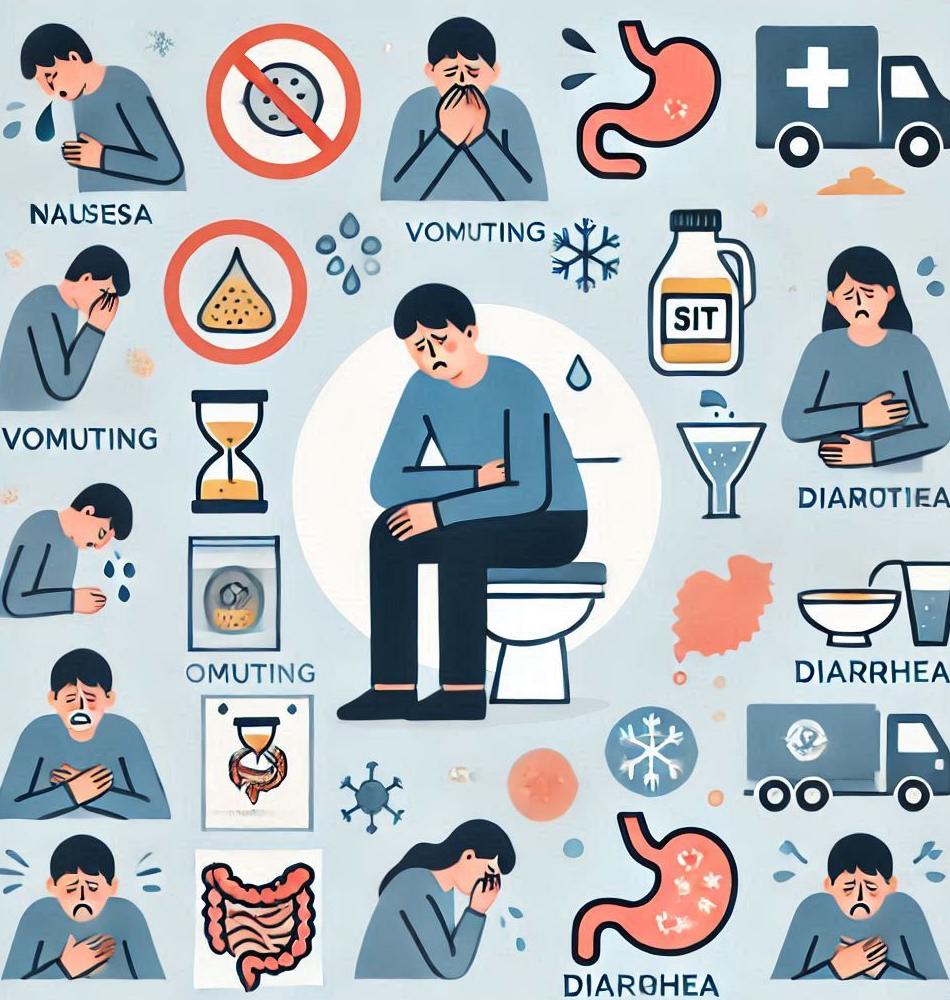We've all been there, haven’t we? You're enjoying a nice meal, then suddenly that uneasy feeling sets in. The inevitable has happened; you've caught a stomach bug. But how long does this unwelcome guest linger before it packs its bags and leaves your body? This comprehensive guide will unravel the mystery of stomach bugs, their duration, and what you can do to feel better faster.
The Road to Recovery: How Long Does a Stomach Bug Last? ⏳
Typically, the duration of a stomach bug, also known as viral gastroenteritis, can vary depending on several factors including the virus that caused the illness and your overall health. Generally, most stomach bugs run their course in one to three days. However, some strains can last longer, and understanding the variations can help you better prepare for the discomfort of this illness.
What Causes a Stomach Bug? 🦠
Stomach bugs are primarily caused by several viruses, the most common being:
- Norovirus
- Rotavirus
- Adenovirus
- Astrovirus
These viruses can spread easily through contaminated food and water or by coming into contact with an infected person. It is important to practice good hygiene to help prevent the spread of these nasty bugs.
Symptoms to Look Out For 🚨
Before discussing the duration of the illness, let's talk about what symptoms to expect:
- Nausea
- Vomiting
- Diarrhea
- Abdominal cramps
- Fever
- Malaise or fatigue
If you experience these symptoms, it’s likely that you’re dealing with a stomach bug.
Duration of Common Stomach Bugs 🕒
The length of time a stomach bug lasts depends on the primary virus responsible for your symptoms. Below is a breakdown of common viral gastroenteritis types and their typical duration:
Norovirus 🌐
Norovirus is one of the most common causes of stomach bugs worldwide.
- Duration: 1 to 3 days
- Contagiousness: Highly contagious and can remain on surfaces, making it easy to spread
Rotavirus 🌍
Mostly affecting infants and young children, rotavirus can also affect adults.
- Duration: 3 to 8 days
- Contagiousness: Can spread through contaminated surfaces or diapers
Adenovirus 📈
This virus can cause various illnesses, including stomach bugs.
- Duration: 5 to 12 days
- Contagiousness: Spread via respiratory droplets and contaminated surfaces
Astrovirus 🌟
A lesser-known cause of gastroenteritis, astrovirus mainly affects young children and the elderly.
- Duration: 2 to 5 days
- Contagiousness: Transferred via contaminated food and water
Factors Influencing Recovery Time ⚙️
Several factors can influence how long your stomach bug may last:
- Your overall health and immune system
- Age - children and the elderly are often more severely affected
- Type of virus responsible for the illness
- Any underlying medical conditions
How to Recover from a Stomach Bug 🌈
Because stomach bugs can leave you feeling weak and fatigued, it's essential to implement proper self-care during your recovery process. Below are essential tips to help navigate through the discomfort:
Stay Hydrated 💧
One of the most important things you can do is to keep yourself hydrated. Vomiting and diarrhea can lead to significant fluid loss, which can quickly lead to dehydration. Here’s how you can stay hydrated:
- Drink clear liquids such as water, broths, or oral rehydration solutions
- Avoid caffeine and alcohol
- Take small sips if you're feeling nauseous
Eat the Right Foods 🍌
When the nausea subsides and you feel ready to eat, choose easily digestible foods. A few options include:
- Bananas
- Rice
- Applesauce
- Toast
These foods help to bulk up your stool and provide some nourishment without irritating your stomach further.
Rest Up 🛌
Give your body the time it needs to heal. Adequate rest will aid in a quicker recovery and help restore your strength.
When to Seek Medical Help ✋
Most people recover from a stomach bug without medical intervention. However, some circumstances warrant a visit to the doctor. Consider seeking medical attention if you experience:
- Severe dehydration symptoms: dry mouth, dizziness, or minimal urination
- Abdominal pain that is persistent or severe
- Bloody stools or vomit
- High fever above 101 degrees Fahrenheit
- Illness lasting more than a week
Frequently Asked Questions ❓
Here are some commonly asked questions surrounding stomach bugs and their duration:
- How can I prevent a stomach bug?
- What should I do if someone in my household has a stomach bug?
- Is a stomach bug contagious?
- Can I go to work with a stomach bug?
Answers:
To prevent a stomach bug, practice good hand hygiene and avoid sharing food and drinks. If someone in your household has the virus, sanitizing surfaces and quarantining sick individuals can reduce the spread. Yes, stomach bugs are contagious, and it is typically best to stay home until you have been symptom-free for at least 24 hours. Going to work while symptomatic increases the risk of spreading the virus to colleagues.
The Final Word on Stomach Bugs 🔚
A stomach bug is indeed a challenging experience, but with proper care, it typically does not last long. By understanding the duration, symptoms, and steps to promote recovery, you can better navigate through this unpleasant illness. Remember to stay hydrated, eat carefully digestible foods, and rest as needed. And when in doubt, don’t hesitate to reach out to a healthcare professional for guidance.

